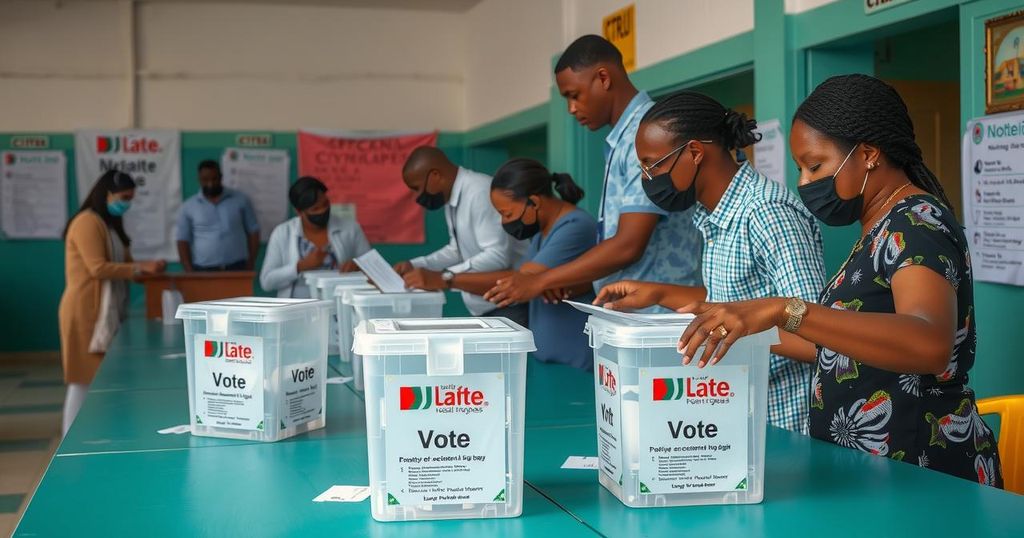Comoros Set for Controversial Parliamentary Elections Amidst Political Tensions

Voters in Comoros are set to elect members for the 33-seat parliament. President Azali Assoumani faces allegations of authoritarianism and election interference, as opposition parties debate participation or boycott of the polls. Approximately 338,000 voters are registered, with results expected by the end of the week.
Voters in the Comoros archipelago are scheduled to participate in elections for the 33-seat parliament, amidst ongoing controversies regarding President Azali Assoumani’s administration. Following his re-election amidst allegations of electoral misconduct last year, Assoumani has faced criticisms from opposition groups alleging authoritarian practices and intentions to position his son, Nour El-Fath, as a successor. Despite calls for boycotts from some factions, polling stations opened for approximately 338,000 registered voters. The elections are poised to reflect the current political dynamics as nearly 100 candidates have qualified to run. Results are anticipated by the end of the week.
Comoros, located in the Indian Ocean, has been under the leadership of Azali Assoumani since his initial coup in 1999. His presidency has seen a continuous cycle of elections, with claims of manipulation and authoritarianism from various opposition groups. Recently, he has granted extensive authority to his eldest son, adding to concerns over the dynastic succession of power. Legislative elections in Comoros have not been held since January 2020, highlighting a significant gap in parliamentary representation.
In summary, the upcoming parliamentary elections in Comoros occur under contentious circumstances, with significant concerns raised regarding the legitimacy of the ruling regime. The participation of voters and the results of the elections will be critical in shaping the political landscape of the country and may influence the future direction of governance, particularly in light of the accusations against President Assoumani’s administration. Although some opposition parties have called for a boycott, others aim to participate to demonstrate against the regime’s shortcomings. The potential implications of these elections could resonate for years beyond the immediate vote.
Original Source: www.areanews.com.au






